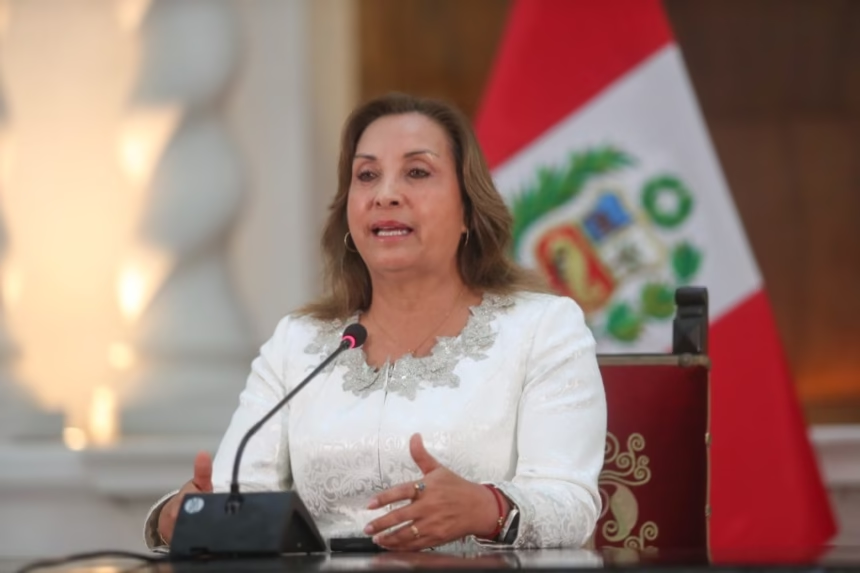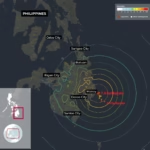LIMA, Peru — In a dramatic overnight session that capped years of anger and drift, Congress voted in the early hours of Friday to oust Peru President Dina Boluarte for “permanent moral incapacity.” The chamber delivered a 124-0 verdict, with six lawmakers missing the vote, uniting factions that rarely agree.
Veteran conservatives who once shielded Boluarte joined left-wing critics to force her out. Less than an hour after the result, 38-year-old lawyer José Jerí, until then head of Congress, took the oath as interim president. He promised an all-out push against crime with six months to go before planned elections.
The vote began around 11 p.m. on Thursday and marked a stark turn for a fragile system. Boluarte, Peru’s first woman to hold the office, rose in December 2022 after Pedro Castillo fell to impeachment for trying to shut down Congress.
Her government, billed at first as a path to calm, soon stalled in protests and drift, with the economy slowing and institutions fraying. Her approval rating sank to about 2 percent, among the lowest on record. It is the eighth change at the top in a decade, with three impeachments, two resignations under pressure, and one caretaker term counted in that churn.
A brutal shooting in Lima hours before the vote sharpened the mood. Three people died at a cumbia concert when gunmen opened fire, exposing a capital struggling to curb violence. Homicides are up 35 percent this year, driven by gangs tied to drugs and extortion that have hit fishermen, small shops, and farms across the country.
“This is not everyday crime, it is a national emergency that Boluarte ignored while scandals piled up,” said Congresswoman Susel Paredes, a centrist who led one of four impeachment bids. “People asked for action. She offered excuses.”
Coalition Against the Peru President
The breadth of the coalition against Peruvian President Boluarte stood out. She had relied on a loose right-leaning bloc, including Rafael López Aliaga’s Popular Renewal and Keiko Fujimori’s Popular Force, to survive eight earlier attempts to unseat her.
This time, even those groups broke ranks. López Aliaga, Lima’s hard-line mayor and a possible 2026 candidate, warned of an “economic haemorrhage” from crime, putting annual losses to tourism and retail at 5 billion dollars.
Fujimori, daughter of jailed former president Alberto Fujimori, called the vote a “moral imperative” and moved to separate her party from Boluarte’s troubles.
Ethical questions trailed Boluarte throughout her tenure and helped tip the balance. Prosecutors examined her collection of luxury watches, dubbed “Rolexgate,” valued at over 100,000 dollars, which far exceeded a public salary. They also flagged unexplained deposits in family accounts.
A different case looked at alleged kickbacks linked to mining permits, feeding anger over elite privilege in a country where about 30 percent live in poverty. Boluarte denied any wrongdoing.
She skipped the 11:30 p.m. congressional hearing set to hear her defence, a choice that seemed to seal the outcome. Her lawyer, Juan Carlos Portugal, said the timing broke due process, but lawmakers saw it as avoidance.
Asylum in the Ecuadorian Embassy
Midnight brought cheers and catcalls across the chamber as the tally landed. From her home in Surquillo, Boluarte released a video calling the move a “coup by elites” and pledged to contest it in court. Reports suggested she might seek asylum at the Ecuadorian Embassy, echoing regional episodes like Mexico’s Emilio Lozada, but she rejected the idea.
“Leaving Peru is not in my thoughts,” she said. Outside, small groups gathered with indigenous flags and anti-corruption banners, chanting “Dina out” into the early light.
Jerí’s arrival offers continuity in process and new uncertainty in practice. A constitutional lawyer from Arequipa, he has led Congress since July and gained a reputation for quiet deal-making and a reformist tone. Speaking at the Palace of Government, he promised to send 5,000 extra police to the worst-hit areas and to fast-track anti-gang laws before year-end.
“We declare war on organised crime,” he said, wearing the presidential sash. He faces a heavy backdrop. Inflation sits near 4.2 percent, foreign investment in mining, which makes up about 60 percent of exports, fell 15 percent amid political risk, and April’s vote will likely serve as a verdict on the establishment.
Economists fear the constant turnover will deepen the downturn. “Another interim president raises the chance of policy drift, especially with global commodity prices in flux,” said Eduardo Tavara, an analyst at Lima’s Universidad del Pacífico.
Copper output, central to state revenue, is under strain from community blockades in the south. Tourism, still weak after the 2022 unrest that left 50 dead, could suffer more. The sol slipped 1.2 percent against the dollar in after-hours trading, showing investor concern.
Audit of Assets
The Peru President’s collapse reflects a wider malaise in Latin America’s fifth-largest economy. Elected as Castillo’s running mate, she was seen as a nod to working-class voters, then moved to the right in office. That shift alienated her base and still did not secure lasting conservative backing.
Indigenous groups, central to the deadly 2023 protests, called her a traitor for sending the military against demonstrators. Human rights concerns drew US sanctions on some police units, adding strain to ties with Washington.
The shock carried across the region. Brazil’s Luiz Inácio Lula da Silva, who aligned with Castillo, urged “democratic respect” in a statement. Chile’s Gabriel Boric asked the OAS to monitor the handover.
At home, civil society organisations such as Transparencia pressed for a full audit of Boluarte’s assets, warning that a weak probe under Jerí could fade as events move on.
Jerí’s grace period may be short. Social media users shared old screenshots of his X follows, showing explicit accounts, including content flagged as disturbing. He rapidly unfollowed more than 300 profiles.
“Hypocrisy at its finest,” one user posted, fuelling calls for scrutiny of the new leader. His team called the matter personal and said it predated his time in office. The episode still highlights Peru’s habit of turning fresh faces into targets.
By sunrise, Lima’s colonial centre felt tense but calm. Boluarte’s removal has cleared one blockage, yet the system still looks fragile. With elections drawing near, voters want safety, honesty, and a plan that works. Jerí’s hard line on crime may win time, but Peru’s history warns that big promises fade when the next crisis hits.
Markets will watch, activists will press, and the country will test whether an eighth president in ten years can steady the ship.














